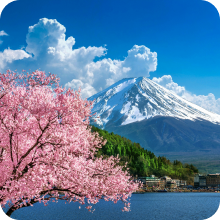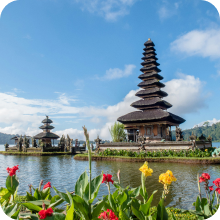Unique Cultural Experiences in Japan: Explore Japan’s Traditions
Japan is a country where ancient traditions seamlessly intertwine with the modern world, offering travelers a unique blend of experiences that are as captivating as they are varied. From the delicate art of tea ceremonies to the vibrant energy of Matsuri festivals, Japan's cultural landscape is as rich and diverse as its history. If you're looking to dive deep into the heart of Japanese culture, this guide will take you on a journey through some of the most unique cultural experiences the country has to offer.
Traditional Japanese Arts and Crafts
The Art of Tea Ceremony (Chanoyu)
The Japanese tea ceremony, or Chanoyu, is not just about drinking tea; it's a spiritual experience that embodies the principles of harmony, respect, purity, and tranquility. Attending a tea ceremony is like stepping into another world, where every movement is deliberate and every object has its place. In cities like Kyoto and Tokyo, you can participate in a traditional tea ceremony and witness this centuries-old ritual. Whether you're a seasoned tea lover or a curious newcomer, the meditative atmosphere of a tea ceremony will leave you with a newfound appreciation for the simple act of making tea.
Ikebana: The Japanese Art of Flower Arrangement
Ikebana, the art of Japanese flower arrangement, is much more than arranging flowers in a vase. It's a disciplined art form that emphasizes balance, harmony, and the beauty of simplicity. Unlike Western floral arrangements, which focus on symmetry and color, Ikebana is all about asymmetry and space. To truly understand this art, consider attending an Ikebana workshop or observing a master practitioner at work. Whether you're in Tokyo, Kyoto, or any other major city, you'll find plenty of opportunities to immerse yourself in the world of Ikebana.
Pottery and Ceramic Workshops
Japan's history with pottery and ceramics is long and storied, with various regions producing distinct styles that have been refined over centuries. From the earthy tones of Raku ware to the intricate designs of Arita porcelain, each piece of Japanese pottery tells a story. If you've ever wanted to try your hand at pottery, Japan is the perfect place to do it. Many towns, such as Mashiko and Shigaraki, offer pottery workshops where you can learn from skilled artisans and create your own piece of Japanese history.
Japanese Performing Arts and Entertainment
Kabuki Theater: A Glimpse into Japan’s Dramatic Arts
Kabuki, Japan's traditional form of theater, is a spectacle of color, drama, and emotion. With its elaborate costumes, exaggerated makeup, and stylized performances, Kabuki is unlike anything else you'll see. The stories often revolve around historical events, moral conflicts, and love affairs, all brought to life by the skilled actors. Tokyo's Kabukiza Theatre is one of the best places to catch a Kabuki performance, where you can enjoy the drama and artistry of this classical Japanese entertainment. Even if you don't understand Japanese, the visual and emotional impact of Kabuki transcends language barriers.
Noh and Bunraku: Experiencing Japan’s Classical Theater
Noh and Bunraku are two other traditional Japanese performing arts that offer a window into Japan's cultural soul. Noh, with its slow, deliberate movements and masks, is deeply rooted in spiritual and religious themes. Bunraku, on the other hand, is a form of puppet theater that combines storytelling with intricate puppetry and music. Both art forms are deeply respected in Japan and provide a unique glimpse into the country's classical theater traditions. If you're in Kyoto or Osaka, be sure to check out a Noh or Bunraku performance for an unforgettable cultural experience.
Traditional Music and Dance Performances
Japan's traditional music and dance are as varied as its landscapes, with each region offering its own unique styles and rhythms. The Koto, Shamisen, and Taiko drums are some of the most iconic instruments in Japanese music, each producing distinct sounds that have been enjoyed for centuries. Traditional dance, such as Bon Odori, is often performed during festivals and is a joyful expression of community spirit. To experience these performances, consider visiting during a festival or attending a cultural event where you can witness the beauty of Japanese music and dance firsthand.
Cultural Festivals and Seasonal Events
Matsuri: Japan’s Vibrant Festivals
Matsuri, or festivals, are an integral part of Japanese culture, celebrated throughout the year in every corner of the country. These festivals range from solemn religious ceremonies to lively street parades, each with its own unique flavor. The Gion Matsuri in Kyoto, Nebuta Matsuri in Aomori, and the Tenjin Matsuri in Osaka are just a few of the most famous festivals that draw crowds from all over the world. Participating in a Matsuri is a great way to experience the energy and enthusiasm of Japanese culture, where you can join in the celebrations, watch traditional performances, and even try local festival foods.
Hanami: Cherry Blossom Viewing
Hanami, the tradition of cherry blossom viewing, is one of Japan's most beloved cultural experiences. Every spring, the country transforms into a sea of pink and white as cherry blossoms bloom across the land. Hanami is more than just admiring the flowers; it's a time for friends and family to gather, enjoy a picnic under the blossoms, and celebrate the fleeting beauty of nature. Some of the best spots for Hanami include Ueno Park in Tokyo, Maruyama Park in Kyoto, and the banks of the Meguro River. To truly experience Hanami like a local, bring a blanket, some snacks, and a bottle of sake, and join the festive atmosphere beneath the cherry trees.
Traditional New Year Celebrations (Shogatsu)
Shogatsu, or New Year, is the most important holiday in Japan, marked by various customs and traditions that have been passed down through generations. The New Year is a time for reflection, renewal, and family, with many people visiting shrines and temples to pray for good fortune in the coming year. Traditional customs include eating osechi-ryori (special New Year's dishes), participating in Hatsumode (the first shrine visit of the year), and sending New Year's cards (nengajo). If you're in Japan during Shogatsu, make sure to visit a shrine or temple to experience the serene and spiritual atmosphere of Japan's most cherished holiday.
Thanks for visiting our blog, are you planing to travel to Japan? Check out our eSIM Japan.

Japanese Culinary Experiences
Kaiseki: The Art of Japanese Fine Dining
Kaiseki is the pinnacle of Japanese cuisine, a multi-course meal that is as much about aesthetics as it is about taste. Each dish in a Kaiseki meal is carefully prepared and presented, reflecting the seasons and the chef's artistry. Kaiseki is a culinary journey that takes you through a variety of flavors, textures, and aromas, often featuring ingredients sourced locally and prepared with traditional techniques. To experience Kaiseki at its finest, consider dining at a traditional ryokan or a high-end restaurant in Kyoto or Tokyo, where you can savor the essence of Japanese fine dining.
Sushi Making Classes
Sushi is perhaps Japan's most famous culinary export, but there's nothing quite like making it yourself under the guidance of a skilled sushi chef. Sushi-making classes are a popular activity for travelers, offering a hands-on experience that lets you learn the art of sushi from the masters. Whether you're in Tokyo's Tsukiji area or Osaka's bustling food districts, you'll find plenty of opportunities to roll up your sleeves and create your own sushi. Not only will you gain a deeper appreciation for this iconic dish, but you'll also get to enjoy the fruits of your labor—a delicious sushi meal!
Sake Tasting and Brewery Tours
No journey into Japanese culture would be complete without sampling sake, Japan's traditional rice wine. Sake has been an integral part of Japanese culture for centuries, enjoyed during celebrations, ceremonies, and everyday meals. Sake tasting and brewery tours offer a fascinating insight into the brewing process, from the selection of rice to the fermentation and aging of the sake. Visiting a sake brewery allows you to taste different varieties of sake and learn about the subtle nuances that make each one unique. Whether you're in the sake-producing regions of Niigata, Kyoto, or Hiroshima, a sake tasting experience is a must for any culinary enthusiast.
Immersive Cultural Experiences
Staying at a Ryokan
A stay at a ryokan, a traditional Japanese inn, is more than just accommodation—it's an immersive cultural experience that offers a glimpse into Japanese hospitality. Ryokans typically feature tatami-mat rooms, futon bedding, and communal baths, often with onsen (hot springs) available for guests. The highlight of a ryokan stay is the kaiseki meal, a multi-course dinner served in your room or in a dining hall. Whether you're in Hakone, Kyoto, or the Japanese Alps, staying at a ryokan allows you to experience the tranquility and elegance of traditional Japanese living.
Participating in a Japanese Tea Harvest
Tea is more than just a drink in Japan—it's a cultural symbol with deep historical roots. Participating in a Japanese tea harvest is a unique way to connect with this tradition, allowing you to experience the tea-making process from leaf to cup. In regions like Shizuoka and Uji, you can join local farmers in the fields, learn about the cultivation of tea, and even try your hand at picking the delicate tea leaves. After the harvest, you'll have the opportunity to taste the fresh tea and learn about the different varieties and preparation methods. It's a hands-on experience that will deepen your appreciation for one of Japan's most beloved beverages.
Meditation and Zen Practices
Zen Buddhism has had a profound influence on Japanese culture, shaping everything from art and architecture to daily practices like meditation. For travelers seeking a deeper spiritual experience, participating in Zen meditation (zazen) is a way to explore this aspect of Japanese culture. Many temples, especially in Kyoto, offer meditation sessions for visitors, where you can learn the basics of zazen and practice under the guidance of a Zen monk. The serene temple surroundings, coupled with the calming practice of meditation, provide a rare opportunity to step away from the hustle and bustle of modern life and find inner peace.
Before you take off make sure to check with local government of the travel status.
FAQs
Do I need to speak Japanese to enjoy cultural experiences in Japan?
While knowing some Japanese can enhance your experience, many cultural activities are tourist-friendly with English guides or translations available.
Are traditional cultural experiences in Japan expensive?
Costs vary, but many cultural experiences offer great value for the depth of immersion they provide. Some, like festivals or Hanami, can be enjoyed for free.
How can I book a tea ceremony or other cultural experiences in Japan?
You can book through travel agencies, online platforms, or directly with the venue. Many hotels or ryokans can also help arrange these experiences.
Can I participate in cultural festivals in Japan as a foreigner?
Yes, many festivals welcome foreign participants. Just be respectful of local customs and follow the guidance of organizers.
What should I wear to traditional cultural events in Japan?
Dress modestly and comfortably. For certain experiences, like tea ceremonies, you might be offered a kimono to wear. Always check if there’s a dress code beforehand.















